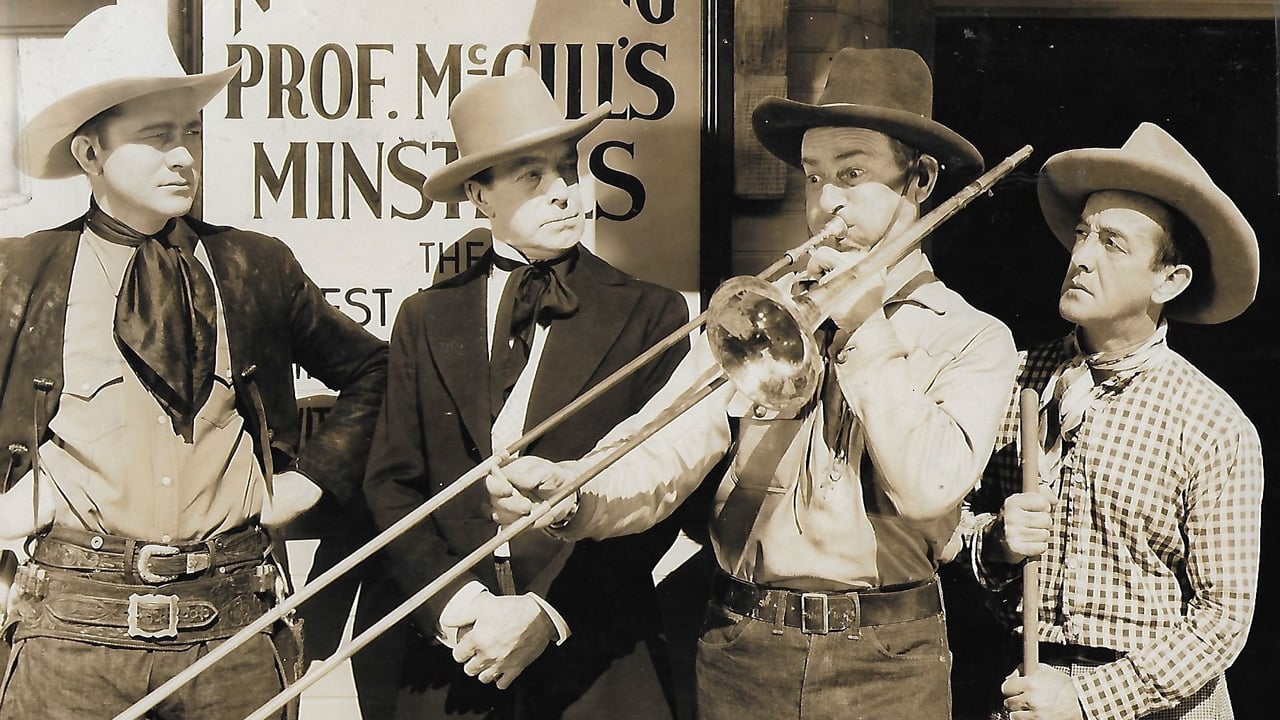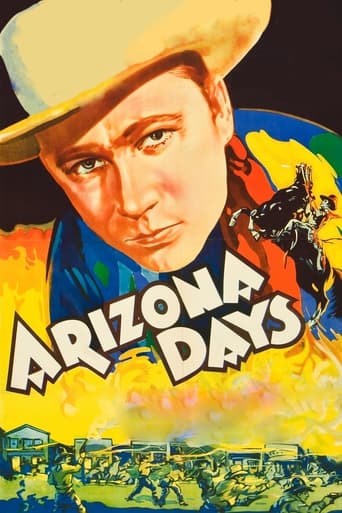

Director: George Stevens. Screenplay: Joel Sayre, John Twist. Story: Joseph A. Anthony, Ewart Adamson. Photography: J. Roy Hunt, Harold Wenstrom. Film editor: Jack Hively. Art directors: Van Nest Polglase and Perry Ferguson. Music director: Alberto Colombo. Sound recording: P.J. Faulkner, John L. Cass. Associate producer: Cliff Reid. (Available on a superb Warner-Turner DVD).Copyright 15 November 1935 by RKO-Radio Pictures. U.S. release: 28 November 1935. 91 minutes. SYNOPSIS: A backwoods sharpshooter enters a contest against the world's best. She would have beaten him too, except that...COMMENT: This admirably glossy straight version of the Annie Oakley-Frank Butler story has both its admirers and detractors. As for me, I like it. True, it bears even less relationship to the real story than Annie Get Your Gun. Nonetheless, as pure entertainment this Annie is a winner. Aside from Melvyn Douglas who is forced to struggle valiantly as the other man, this version assembles a great cast, although, would you believe, in my opinion it's Chief Thunder Bird who actually walks away with the movie's top acting honors?
... View MorePer his M.O., one of the reviewers of this film fills the site with yet more of his incorrect, at best, assumptions and mis-statements. This one starts with his usual assertions that Grand National Pictures signed Tex Ritter to a contract to make a series of films produced by Grand National. Other than about four films (including two James Cagney films), Grand National was primarily a distribution company for the films of about a half-dozen independent producers. He also incorrectly states that...."they (Grand National) signed Tex Ritter from The Grand Old Opry (sic) as their singing cowboy. No, Bucky, Tex Ritter had never appeared on The Grand Ole Opry until after his singing-cowboy career was over. Tex Ritter, then working, on a radio station in New York City, was SIGNED to a film contract by producer Edward Finney, who, in turn, then signed a contract, with Grand National Pictures, to produce a series of westerns for Grand National distribution---GN did not produce any of the westerns that were distributed under the GN logo. And, by the way, quoting Booda-do---"As a studio Grand National Pictures only lasted for a couple of years..."; the last time I looked, a couple meant two...and the last time I looked, Grand National distributed films made by independent producers (in addition to actually producing two Cagney films)for over five years...which is a couple doubled plus one.The reviewer who included the clap-trap misinformation in his review has been contacted by private message(s), over the past couple of years, regarding his error-statements,(on six of the ten reviews this contributor has read by this reviewing assumer) in which it was suggested that he might care to edit his review(s) and delete the highly-fabricated statements he made, but he seems to resent, rather than appreciate someone trying to help him not look foolish. Other than his opinion of the film(s) he writes about, his knowledge of vintage films seems to be somewhat, at best, lacking.
... View MoreTex Ritter and sidekick Grass Hopper (!) take a job at a vaudeville show In the town of Tombstone, Arizona; some bad men react to being forced to pay for admission by destroying the show. Tex then becomes a county tax collector in order to make the men pay, or so I've heard as the print I watched appears to be missing a reel!This is better than it should be thanks to the boundless charisma and talents of Tex Ritter, though this is clearly not one of Tex's best.However, this is the first and only Saturday matinée western I've ever seen where the villains murder a young boy on screen! Then we're treated to a happy ending where the kid appears to have been forgotten amongst the singing and laughing and marital bliss!Some years later, bad guy Glenn Strange was cast as the last of Universal's Frankenstein monsters.
... View More"Arizona Days" opens with a snappy song on horseback by cowboy star Tex Ritter, but truthfully, that's about as entertaining as this film gets in it's fifty seven minute run. However the DVD print I viewed had a rather disjointed cut following a scene where Tex offers to help a minstrel show owner by paying off a thirty one dollar debt in exchange for a singing gig in the show. It quickly jumps to a ten pace gunfight between Tex and villain Harry Price (Forrest Taylor). Another review of the film states that Price was behind the burning of the minstrel show wagons, so with this scene missing, the movie's continuity suffers in the print I saw.Syd Saylor is Tex's sidekick, and provides a bit of comic relief with a running gag where he attempts to play a trombone to poor effect. Saylor's film history includes an astounding 360 movies in which he appeared, though uncredited in many of them. My first intro to Saylor's work was as John Wayne's sidekick Dink Hooley in "Born to the West", also known as "Helltown", where he gets a few laughs trying to sell lightning rods to unsuspecting victims.When you come right down to it, there's not much of a story here, as Tex manages to get the drop on Price's gang in an attempt to secure back taxes that they owe. Tex won the right to collect when he beat bad guy Price to the draw in the aforementioned gunfight.Poor production values and a consistently dark picture often interfered with this viewer's enjoyment of the film. On the plus side were three tunes by Ritter, including "High, Wide and Handsome", "Arizona Days", and opening and closing renditions of "Tombstone, Arizona". Pretty Eleanor Stewart winds up as Ritter's new bride in the closing scene, even though there was no romance to speak of during the movie, but the image you'll remember is Syd Saylor's character "Grass" Hopper wearing a "Just Married" sign around his neck as he rides the back of the buckboard heading out of town.
... View More